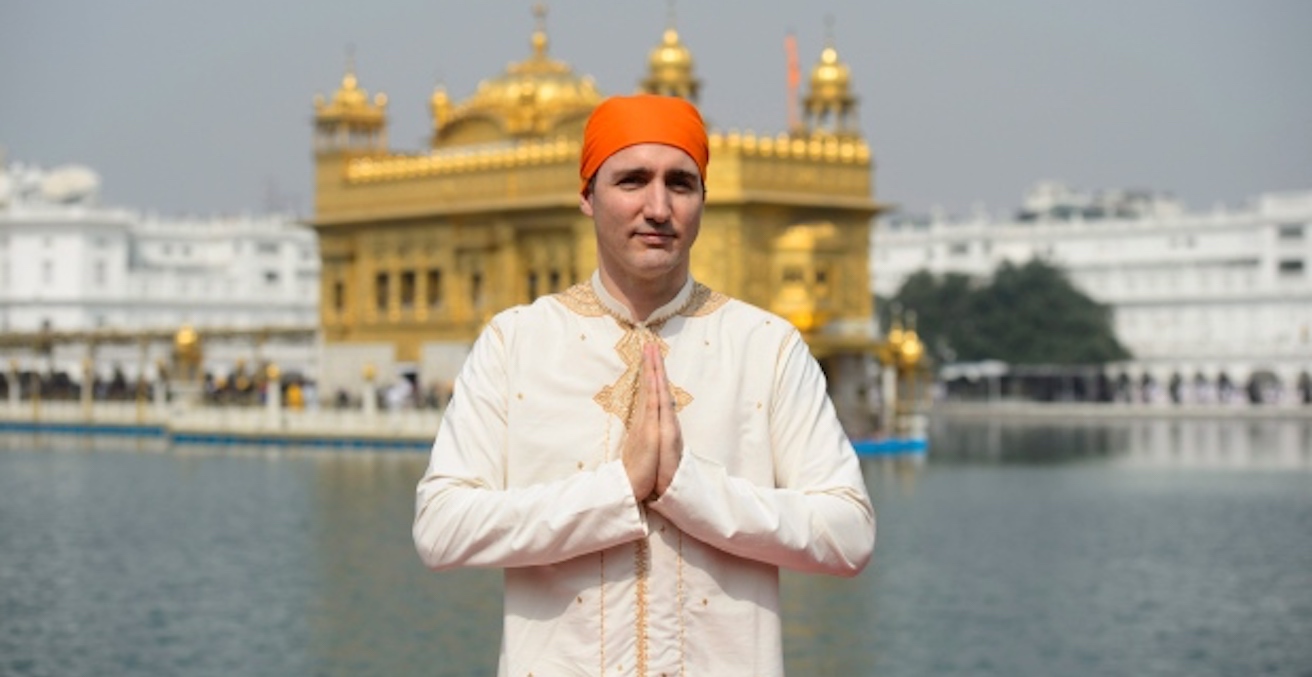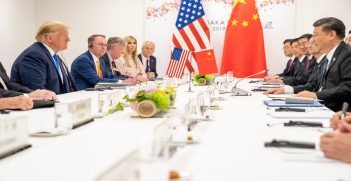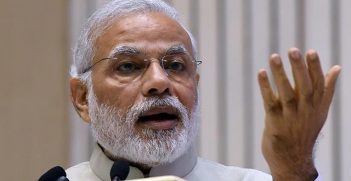Sikh-ing Trouble: Trudeau's Visit Gives Insight into Canada-India Relations

India-Canada relations have become hostage to sentiment within Canada’s Sikh community. As Trudeau’s visit to India showed, New Delhi remains suspicious of Canadian politicians sympathising with the separatist movement.
As two federal, parliamentary, plural democracies with strong civil society links and a mutual desire to forge greater economic ties, India and Canada have enough structural commonalities to maintain a fairly benign understanding and productive relationship. Yet a residual issue within the Indian diaspora in Canada has become a dark cloud shadowing the countries’ relations. This ‘dark cloud’ created significant difficulties and controversy during Canadian Prime Minister Justin Trudeau’s visit to India last week.
During the 1980s, growing militancy in the north-western Indian state of Punjab focused on gaining greater autonomy for the Sikh community and, at its most extreme, creating a separate Sikh country called Khalistan. In 1984, with a number of militants basing themselves inside the Golden Temple—Sikhism’s holiest site—Prime Minister Indira Gandhi ordered Indian forces to storm the temple complex. The operation killed more than 700 people (close to 500 civilians) and caused significant damage to the temple, causing great affront to Sikhs. Several months later Gandhi was assassinated by her Sikh bodyguards. In retribution, mobs in Delhi and Punjab enacted retributive violence upon Sikhs, resulting in the death of at least 3,000 people (Sikh organisations put the figure at 8,000).
In response to these pogroms, Khalistani extremists bombed an Air India flight from Montreal to Delhi in 1985, killing all 329 people on board. Babbar Khalsa, a Sikh terrorist organisation founded in Vancouver (now based in Pakistan and being assisted by Pakistani intelligence), was deemed responsible for the attack. The only person convicted of participating in the plot was released from a Vancouver prison in February 2017. The mastermind of the bombing, Talwinder Singh Parmar, was killed by Indian police in 1992 after fleeing Canada.
These events provide the framework within which an active and vocal section of the Canadian Sikh diaspora organise themselves in Canadian society, and approach their relationship to the Indian state. While the Khalistani movement was considered subdued in India by the early-to-mid 1990s, it lives on in the romanticism of elements within the Canadian Sikh diaspora, particularly those who moved to Canada seeking refuge from the turbulence in Punjab in the 1980s. This provides a persistent irritant to the Indian government as the scars of its Partition in 1947 leads the country to have little tolerance for any secessionist movement, particularly one based in a friendly country.
There are close to half a million Canadian Sikhs, and for the most part they are model citizens. Sikhism’s theological focus on justice, ethics and public service induces Sikhs to become highly active in their communities. This is prominently reflected in the 17 Sikhs who are current members of the Canadian parliament. This demographic over-representation combined with the concentration of Sikhs in specific suburbs of Toronto and Vancouver makes Sikh concerns a prominent democratic calculation for Canada’s political parties.
Trudeau’s Liberal Party has generally been able to harness the support of the Sikh community; 16 of the 17 Sikhs in the parliament are Liberals, four of whom are cabinet ministers. However, this solid support has recently encountered a threat with the ascension of Jagmeet Singh to the leadership of the New Democratic Party (NDP), Canada’s social-democratic party. Singh was instrumental in having the Ontario provincial legislature declare the 1984 anti-Sikh riots in India a “genocide”—to the chagrin of India—and has been a prominent advocate for Sikh rights in Canada and globally.
This not only complicates the relationship between the Liberal Party and the Sikh community, but also further complicates the relationship between India and Canada. Singh has been non-committal on the subject of Khalistan, trying to placate a number of constituencies, he has expressed that he supports “the right of self-determination” for all peoples. However, the Indian government views Singh with enough mistrust that in 2013 he was denied a visa on the grounds that “anyone indulging in, directly or indirectly, attacking India’s sovereignty and territorial integrity is not welcome to India.” For a party leader of a friendly country—and a possible prime minister—to elicit such a reaction is a serious bilateral thorn.
India remains sensitive to any criticism coming from the Canadian Sikh diaspora and keeps a wary eye on attempts by Canadian politicians who try to placate Sikh grievances. India raised its concerns about Trudeau’s attendance at last year’s Khalsa Day parade in Toronto, where Khalistani flags were waved and images of Sikh separatist leaders were put on display. Compounding this, the Indian government, and in particular the state government of Punjab, had become convinced that members of Trudeau’s cabinet held Khalistani sympathies.
The week prior to Trudeau’s arrival in the country, the Indian current affairs magazine Outlook ran an interview with Punjab’s Chief Minister Captain Amarinder Singh in which he said: “On the face of it, there seems to be evidence that there are Khalistani sympathisers in Trudeau’s cabinet.”
Previously, Captain Singh had refused to meet with Canadian Defence Minister Harjit Sajjan due to this suspicion. The Chief Minister insisted on a clarification from Sajjan and another Canadian minister that they did not support the separatist movement before agreeing to meet during Trudeau ‘s visit to India. Upon meeting both Trudeau and Sajjan, Singh presented them with a list of nine Canadian-based persons India considers Category A terrorists and sought assurances from the prime minister that Canada would not ignore radical Sikh elements.
In Trudeau’s subsequent joint press conference with Prime Minister Narendra Modi, the Indian leader stated that any attempts to undermine India’s sovereignty and unity will not be tolerated. That this statement had to be made by Modi indicates just how much India-Canada relations have become hostage to the Khalistan issue. Canada’s unwillingness to confront this issue seems be driven by a concern that dealing with Sikh separatist sentiment too forcefully may undermine Canada’s pluralist credentials. However, both the Indian and Canadian states are the defenders of plurality, with secessionist movements in both states driven by monocultural desires.
In general, Canada does well in balancing its desire to respect the concerns of its new communities with the cordial relations with their countries of emigration. Yet, the unique nature of the highly engaged Sikh community has provided a more difficult task. However, the tribulations of Trudeau’s Indian visit may induce a revised approach capable of alleviating Indian concerns while also maintaining domestic democratic realities.
Grant Wyeth is a political analyst focusing on Australia and the Pacific, as well as India and Canada. He holds a Masters of International Relations from the University of Melbourne with a focus on political philosophy and development theory.
This article is published under a Creative Commons Licence and may be republished with attribution.





